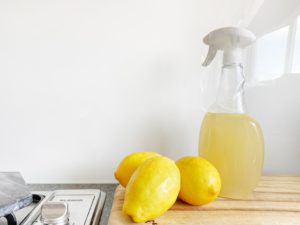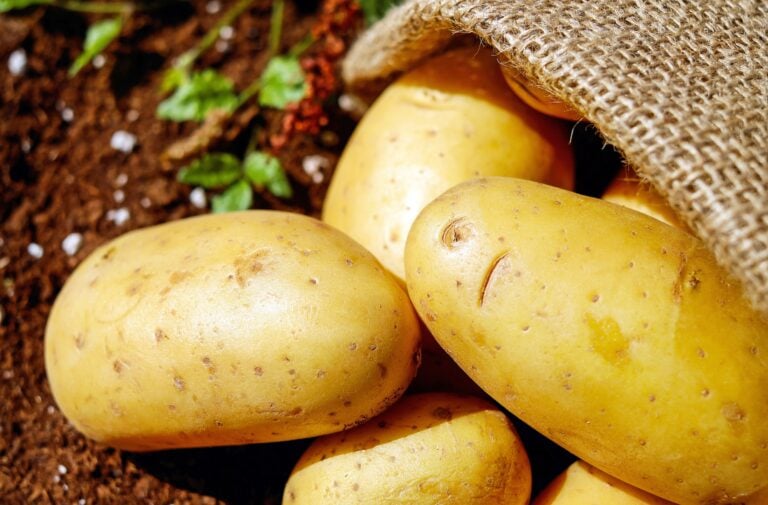Eco-Friendly Cleaning Methods to Reduce Your Home’s Pollution
 Eating plant-based foods and buying sustainable beauty products are great ways to reduce your environmental footprint. However, your home also contributes to your carbon emissions, including what you use to clean it. Check out these eco-friendly cleaning methods to reduce your home’s pollution overnight and live a greener lifestyle.
Eating plant-based foods and buying sustainable beauty products are great ways to reduce your environmental footprint. However, your home also contributes to your carbon emissions, including what you use to clean it. Check out these eco-friendly cleaning methods to reduce your home’s pollution overnight and live a greener lifestyle.
How Do Household Cleaners Harm the Environment?
Standard household cleaners produced by name-brand companies are technically safe for humans to use but aren’t great for the planet. The chemical ingredients wash into waterways and soak into surrounding environments. If they don’t have a biodegradable label, those chemicals affect animals and plants long-term.
The U.S. Environmental Protection Agency (EPA) has a long list of volatile organic compounds (VOCs) that appear in products like cleaners. They include ingredients like:
- Phosphorus
- Benzene
- Formaldehyde
- Ethylene
- Toluene
Other cleaning solutions, like ammonia, are also bad for the environment because they poison water and food sources. When animals die, their deaths disrupt the food chain and the entire ecosystem feels their loss.
Eco-Friendly Cleaning Methods
Rather than contributing to polluted airways, waterways and landscaping, sustainably-minded people can switch to these eco-friendly cleaning solutions to support the environment at home.
1. Baking Soda and Vinegar Cleaner
People often rely on ammonia to break down stains, grease and mold. You might use it to clean your bathroom or kitchen, but it creates vapors that cause severe respiratory distress when inhaled in high amounts. Your home’s air and the air released into your local environment will be safer if you use baking soda and vinegar to clean grime instead.
Combining these ingredients is an excellent alternative to household cleaners with ammonia. Ammonia washes down drains and into waterways, eventually reaching the ocean. Fish and other ocean creatures can’t pass ammonia through their systems like other waterborne pollutants, making them more likely to die from ammonia poisoning.
Ocean life is already up against climate change, which caused New York’s lobster landings to fall by 97.7% since 1996 due to warming waters. It’s critical that people try to help the planet as much as possible — starting with eco-friendly cleaning methods that reduce your home’s pollution.
2. Vacuums With HEPA Filters
You might not think your vacuum impacts the environment, but it does. It moves air through its tubing to suck dirt off your floors and releases the air back into your home. That allows particulate matter like VOCs to linger.
A high-efficiency particulate air (HEPA) filter vacuum will catch the VOCs and make your home’s air safer. When you open your doors or windows, the air released into the environment will be cleaner for plants and animals to breathe, too.
3. Microfiber Towels
Paper towels are everyday household items that contribute to deforestation. Losing vital access to forests that scrub carbon dioxide (CO2) from the air and replace it with oxygen makes the fight against climate change much harder.
You’ll see the same results if you swap paper towels with microfiber alternatives. The fine fabric absorbs liquids and traps dirt or dust with each swipe. Toss them in your washing machine to reuse them and you’ll also reduce your grocery budget by removing paper towels from your shopping list.
4. Organic Air Fresheners
Store-bought air fresheners might make your home smell lovely, but check their ingredient lists. They often contain VOCs that cause headaches and nausea before escaping your home and leaking into the environment.
Air freshener plug-ins and sprays from organic brands will fill your house with your favorite scents without chemical ingredients. You could also make your home smell better by making a sage stick or diffusing essential oils.
5. Drain Snakes
Potent clog-removing solutions might solve your clogged drains occasionally. Although they make cleaning easy, the chemicals wash into waterways and pollute underwater environments. You can reduce your home’s pollution by using a drain snake to dislodge clogs in minutes. If there’s a leftover odor, you could wash fruit rinds through the garbage disposal in your sink to kill bacteria with their high pH levels.
6. Organic Soaps
People clean their homes to banish bacteria, so using antibacterial cleaning solutions is tempting. While they might get the job done, they can also trigger resistance mechanisms in bacteria and germs that make the pathogens immune to antibacterial concoctions.
You can still wash bacteria away with organic hand and household cleaning soaps. They rinse down the drain with any cleaner, so look for all-natural soaps. When people reduce the number of antimicrobial-resistant bacteria, the planet will be a healthier environment for all living things.
Reduce Your Home’s Pollution Today
Anyone can use these eco-friendly cleaning methods to reduce their home’s pollution. Switching simple things like paper towels to microfiber cloths positively impacts the environment. Consider the products and tools you currently use to clean your household to pinpoint better alternatives that don’t harm the planet.


